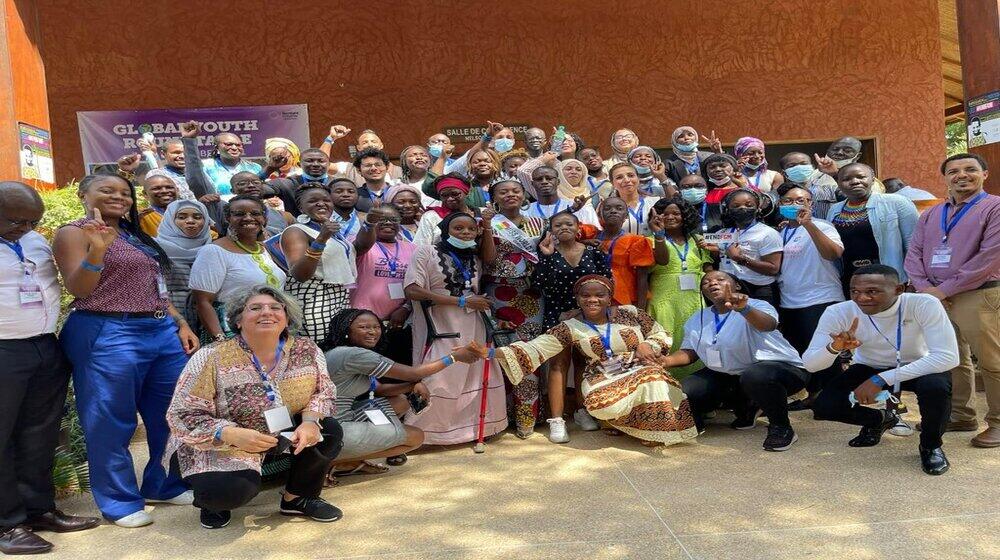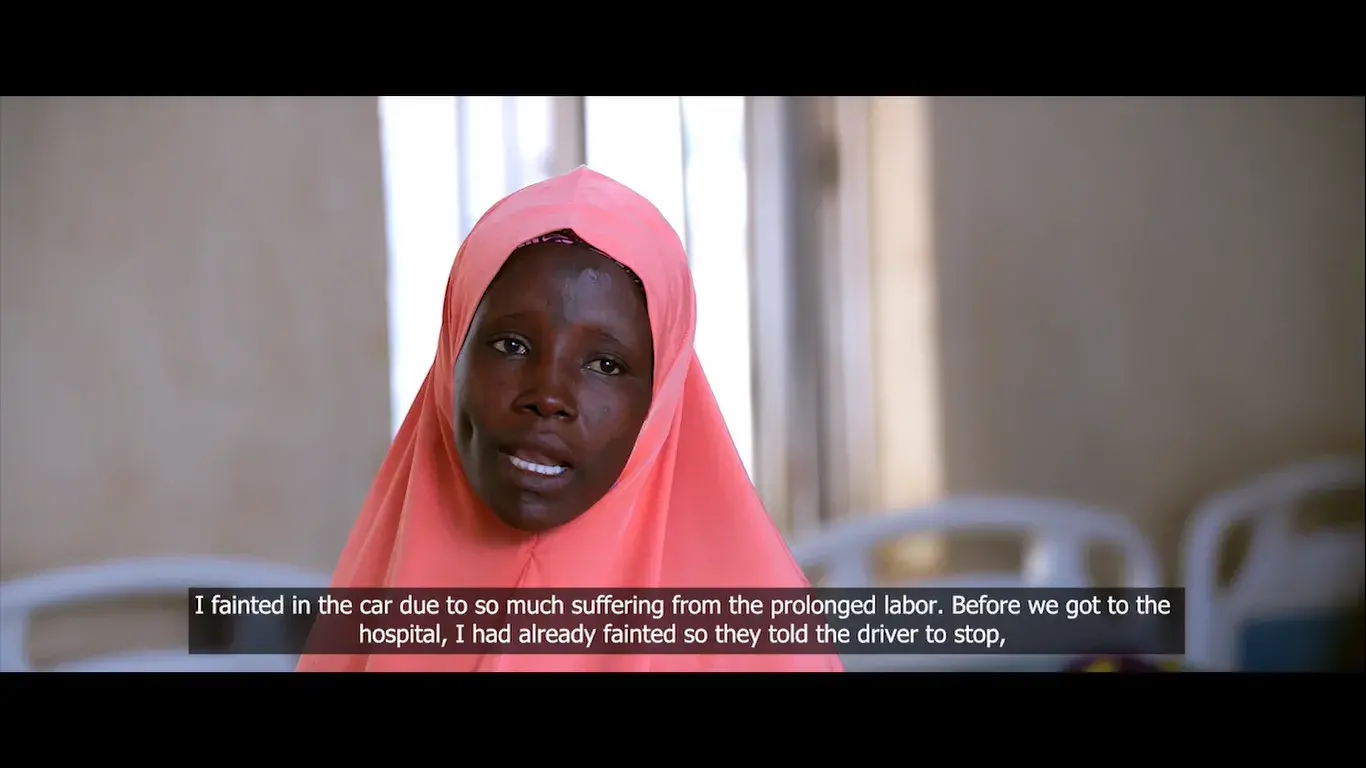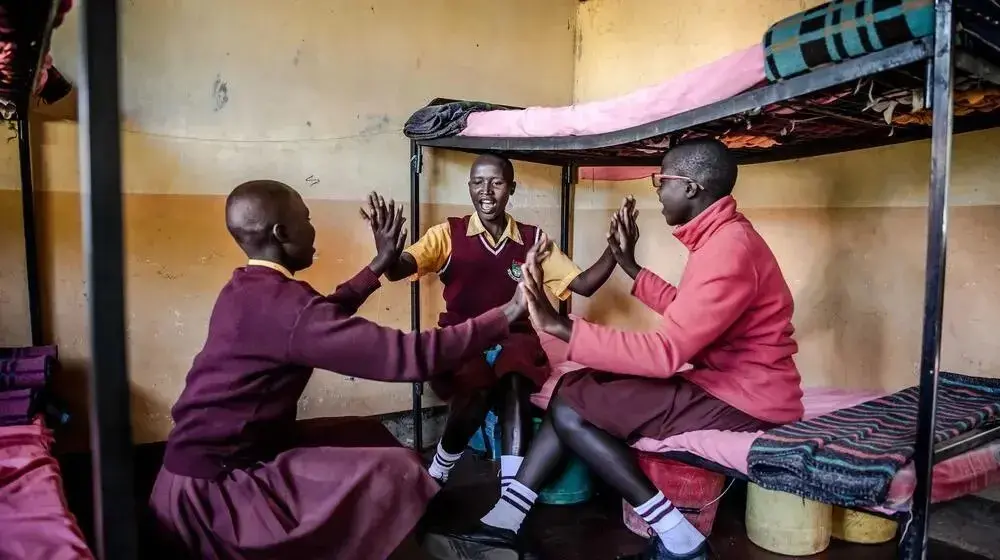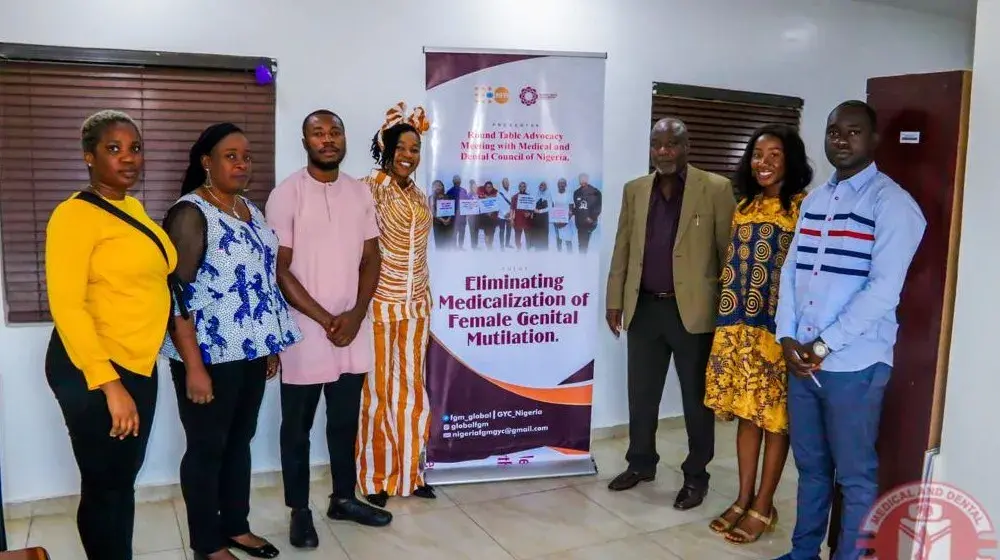Costly Aderibigbe was 25 years old when she founded a youth-led organization to fight against female genital mutilation (FGM) in Nigeria. Community elders initially looked down on her and fellow activists like they were children, she said. But Aderibigbe is convinced that her age is an advantage for the work.
“Young people are persistent and energetic,” she said. “We don’t give up easily.”
Several years later, her organization Value Female Network had convinced some of those same community leaders to publicly declare their abandonment of FGM.
Aderibigbe was one of more than 50 youth advocates from across Africa who met in Somone, Senegal this week to share experiences and devise strategies for ending FGM, a practice which 200 million women and girls have suffered worldwide.
More than 100 other delegates from countries including Colombia and Indonesia participated online in the three-day event, which was organized by the UNFPA-UNICEF Joint Programme to Eliminate Female Genital Mutilation.
As they seek to accelerate progress toward the global goal of ending FGM by 2030, the United Nations Population Fund (UNFPA) and the United Nations Children’s Fund (UNICEF) are putting more responsibility in the hands of youth, betting that today’s young people have the drive, education, and tools to effect change.
“FGM is an issue that no one is keen on discussing. The youth are more daring. They have the power to walk up to their leaders and challenge them,” said Mireille Tushiminina, coordinator of the UNFPA-UNICEF Joint Programme.
“I think it was really time for them to be in the driver’s seat,” she said.
The UNFPA-UNICEF Joint Programme to end FGM started in 2008 and is the largest global programme working to eliminate this harmful practice. FGM, which involves the partial or total removal of the external female genitalia, is internationally recognized as a human rights violation and can lead to serious health complications and death.
In January the two U.N. agencies will launch the fourth phase of their global programme, which will run until 2030.
Earlier phases were more focused on engaging with governments to pass laws and enforce legislation, said Tushiminina, while Phase IV will have youth steering the agenda.
“The youth have the energy”
Hyaceinthe Coly, Executive Director of the Youth Network for the Promotion of Abandonment of FGM and Child Marriage in Senegal, has experience navigating generational conflict in his country.
In addition to doing advocacy work and assisting victims, the network organises intergenerational dialogues to break down barriers about sensitive subjects.
“Older generations are more patriarchal, more entrenched in tradition,” said Coly.
Youth have made progress in Senegal just by speaking up about FGM and making the subject less taboo, he said.
Mame Ngor Diouf, Secretary-General of the Ministry of Women, Family, Gender, and Children’s Protection, said that while Senegal has strong legislation against FGM the main obstacle to ending it is the deeply entrenched sociocultural dimension.
In some countries women are considered unmarriageable or face ostracism if they do not undergo FGM. It is often considered a rite of passage, and sometimes attributed to religious beliefs.
In Senegal about one in four women and girls has undergone some form of FGM, even though it has been criminalised since 1999.
“Young people can break the silence,” Diouf said. “They are the solution.”
In Senegal’s neighbour The Gambia, the fight against FGM faced a setback when former president Yahya Jammeh fled into exile in 2017. Jammeh had banned the practice, along with child marriage, but many people assumed his laws were no longer in force when he left office.
“A lot of Gambians don’t understand how the laws work,” said Fatima Gomez, a 19-year-old activist. “We need to make sure we approach people in a very understanding way.”
People her age are equipped to do this, she said.
“The youth have the energy and they have a more current mindset and ideas.”
Youth also have the edge on using new tools such as social media, which can be valuable for advocacy, said Aderibigbe, from Nigeria. UNFPA has run programmes in Nigeria to train youth advocates to use social media as an effective tool for driving social change.
A global movement
During the three-day Global Youth Roundtable, FGM activists from more than 17 countries got to know each other, watched presentations from their peers and took part in group workshops. Although most were from Africa, the goal of the UNFPA-UNICEF Joint Programme is to launch a global youth movement to eliminate FGM.
This was the first meeting of its kind where youth from different countries could share their experiences and ideas. Some of the recommendations that emerged were to improve data collection, fund grassroots organizations, involve healthcare providers and engage young people in policy formation.
“It was really important for us to bring young people in one room to discuss, since they’re the ones who will be empowering the next generation,” said Joint Programme coordinator Tushiminina.
At the end of the event participants agreed to set up a consortium with a vision to end FGM by 2030, which they will formally launch in February.
More than 34.4 million people in over 20,800 communities have publicly declared the abandonment of FGM since the Joint Programme started in 2008. Rates have declined in some countries, but because of population growth the number of girls estimated to be at risk of FGM every year is still growing.
About 68 million girls are at risk of undergoing FGM by 2030 if current trends prevail.
“Rates have gone down in younger generations,” said UNFPA Representative for Senegal Cecile Compaore, citing Burkina Faso and Kenya as good examples. “But the speed of decline is not fast enough to eliminate FGM by 2030.”
The coronavirus pandemic has been a setback, Compaore said, because during lockdowns many girls were out of school and families fell deeper in poverty, both factors that contribute to FGM. Access to support services was also disrupted.
“Unfortunately with COVID-19, we are starting to lose ground in many countries,” she said.
But the youth at the roundtable event were not discouraged.
“I hope we can come up with real strategies on how we can end FGM. I want to know what I can do to help,” said Hlobisile Masinga, the leader of an organization working on sexual and reproductive health for young people with disabilities in South Africa, where FGM is not widespread.
“I’m really determined to help every girl grow up whole and unharmed,” said Saada Djadid Mahamat, a 23-year-old activist from Chad.
“This event allows us to have a clear idea of FGM around the world and to see how we can work together.”
Contact:
Jacob Enoh Eben | Regional Communications Advisor | UNPFA WCARO | Dakar, Senegal | Tel: +221 33 859 8228 | Cell: + 221 77 358 6662 | Email: eben@unfpa.org
Mandiaye Pety BADJI | Spécialiste communication média et réseau sociaux | UNFPA WCARO | Tel.+221774423573 | mbadji@unfpa.org





